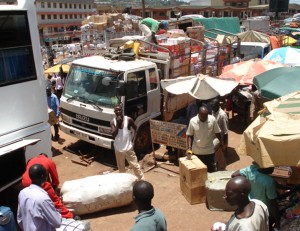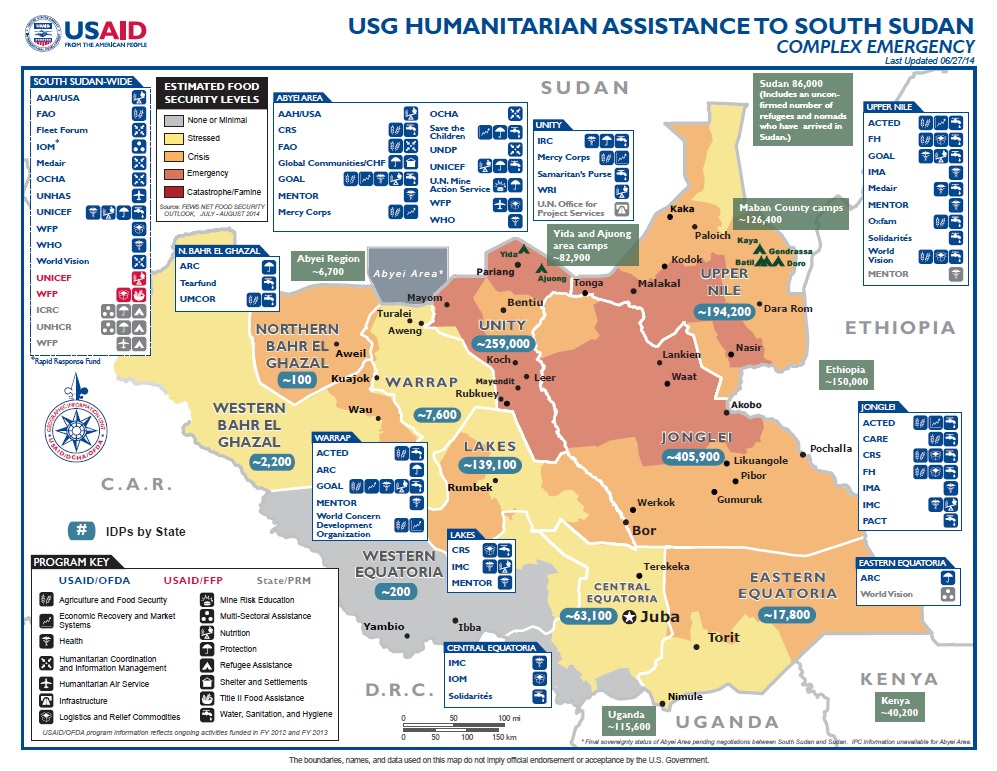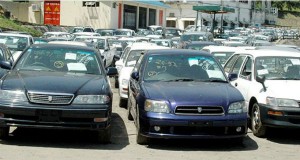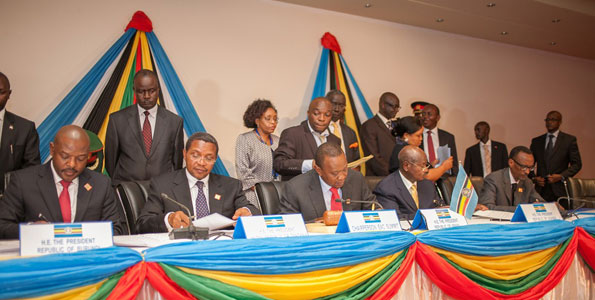By
sowmedia
|
Blog
Juba, South Sudan | 1st July 2014
 As more than 50 percent of South Sudanese live below the poverty line, only wealthy individuals can access safe and nutritious food which is largely imported from East Africa, Ethiopia and Sudan. The majority of people cannot.
As more than 50 percent of South Sudanese live below the poverty line, only wealthy individuals can access safe and nutritious food which is largely imported from East Africa, Ethiopia and Sudan. The majority of people cannot.
Food sellers complain that they are forced to charge high costs for their wares due to duty charges and the expense of moving food along difficult routes. Simon Jungu, a Ugandan food exporter to South Sudan explains that he pays hefty taxes to transport produce. “I pay unbelievable amounts to set up a stock for my products in Juba,” says Jungu. “To realise any profits, I charge almost three times the price for the food stuffs.”
Hardest hit are the states far from Juba, where transportation costs are high due to risk of violence and poor roads. South Sudan’s application to join the East African community is still pending. Many hope that taxation on goods from East Africa will be eliminated if the country joins the community.
South Sudan is largely dependent on food imports as a legacy of decades of civil war, which deprived it of an agricultural backbone. Farmers often had to flee their homes during the fighting, meaning that traditional farming knowledge was lost and infrastructure was minimal or non-existent.
These problems have been compounded by the current violence that begun last December with clashes between forces royal to South Sudan’s President Salva Kiir and his former deputy, Riek Machar. The widespread violence has made the transportation of food to many parts of the country impossible.
Much of South Sudan now does not meet the United Nations Food and Agriculture Organisation (FAO) definition of food security as a period when “all people, at all times, have physical and economic access to sufficient, safe and nutritious food to meet their dietary needs and food preferences for an active and healthy life”.

The 2005 peace agreement that officially ended the war between northern and southern Sudan enabled developmental organisations try to revitalise the country’s bread basket found in the three states of the Greater Equatorian region, Western, Eastern and Central Equatoria State. These states, unlike the rest, have rich soils and reliable rains that support agriculture.
For South Sudan to stop importing food it first needs to increase its food production, according to a USAID report on agriculture in South Sudan. It shows that South Sudan has vast amounts of uncultivated, arable land. With more than 230,000 square miles of potential farming land, only five percent is being cultivated, according to South Sudan’s Ministry of Agriculture.
The FAO and other organisations have stepped up efforts to increase productivity and expand the area under cultivation. USAID has agriculture as one of its main focus of assistance to South Sudan and seeks to transform agricultural practices by training local famers in modern farming skills.
As part of its efforts to improve agriculture, the FAO is distributing seeds to farming associations and providing on-field training. This has boosted food production in the Greater Equatoria region. However, in order to sustain this output, the region also needs security and infrastructure and the current violence has hampered these agricultural advancements.
A recent FAO report shows how the current conflict has hampered crops in conflictive areas, where people have fled and assets were destroyed. It warns that food security is expected to deteriorate in the coming months, estimating that the number of severely food insecure people stands at 3.5 million.
Given that the conflict has impeded the transportation of food, food organisations like the World Food Program (WFP) have started air dropping food to tens of thousands of internally displaced people.
For all your cargo inquiries to and from any part of South Sudan, please call us today on +31 10 476 0241 or email us on info@africashippinglogistics.com. You can visit our website www.africashippinglogistics.com for more information about our services.
We look forward to serving you!
The views expressed in this report do not necessarily reflect the positions or opinions of www.africashippinglogistics.com
 With effect from 1st July, the Tanzanian parliament has passed the age restriction secular to be 8 years instead of 10 years, beyond it dumping fees is applicable.
With effect from 1st July, the Tanzanian parliament has passed the age restriction secular to be 8 years instead of 10 years, beyond it dumping fees is applicable.



